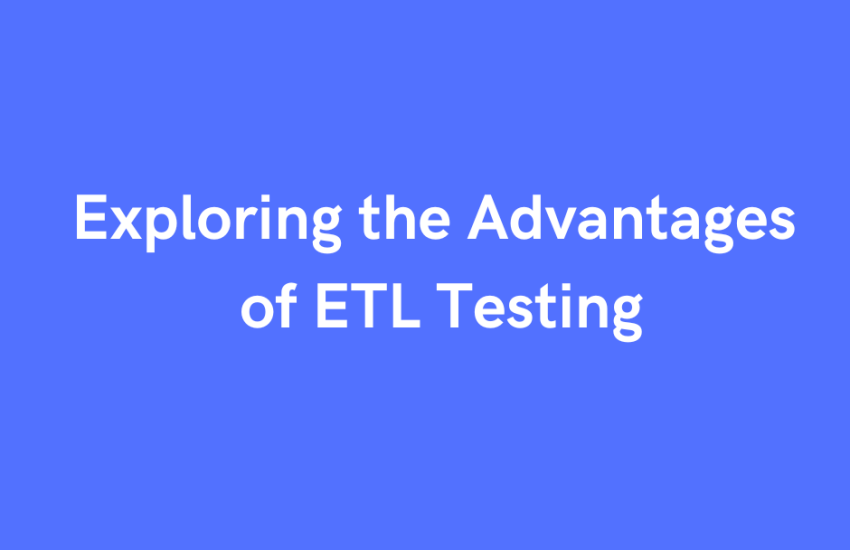In modern data-driven environments, Extract, Transform, and Load (ETL) processes play a critical role in ensuring the reliability and integrity of data movement and transformation. ETL testing serves as a vital quality assurance measure to validate each phase of the ETL process, safeguarding the accuracy and efficiency of data operations. In this article, we delve into the significant advantages of ETL testing and its impact on data management practices.

Data Accuracy and Integrity:
ETL testing verifies the accuracy and integrity of data throughout its lifecycle, from extraction to loading. By validating data transformations and mappings, organizations can ensure that data is transferred accurately between source and target systems, minimizing the risk of data corruption or loss.
Improved Data Quality:
It facilitates data profiling, cleansing, and validation, enabling organizations to maintain high-quality data. By identifying and rectifying data quality issues early in the process, organizations can enhance data reliability and consistency, empowering stakeholders to make informed decisions.
Regulatory Compliance:
ETL testing ensures compliance with regulatory standards governing data management and privacy. By validating data security, auditability, and governance controls, organizations can mitigate the risk of non-compliance and safeguard sensitive information, avoiding potential legal and financial repercussions.
Enhanced Performance and Scalability:
It optimizes the performance and scalability of data integration processes by identifying and resolving performance bottlenecks. By tuning SQL queries, optimizing ETL workflows, and conducting scalability testing, organizations can improve data processing efficiency and accommodate growing data volumes and user demands.
Reduced Risk and Cost:
ETL testing mitigates the risk of data errors, inconsistencies, and failures, reducing the potential impact on business operations. By identifying and addressing issues early in the development lifecycle, organizations can minimize rework, downtime, and associated costs, ensuring project success and stakeholder satisfaction.
Increased Business Agility:
ETL testing enables organizations to adapt quickly to business requirements and data landscapes. By validating data transformations and business rules, organizations can ensure that their ETL processes remain aligned with evolving business objectives, driving innovation and maintaining competitiveness.
Stakeholder Confidence:
ETL testing instills confidence in stakeholders by providing assurance of data accuracy and reliability. By demonstrating adherence to best practices and regulatory requirements, organizations can build trust with customers, partners, and regulators, enhancing their reputation and credibility.
Conclusion:
ETL testing offers significant advantages for organizations seeking to harness the power of data for strategic decision-making and business growth. By ensuring data accuracy, integrity, and compliance, It enables organizations to unlock the full potential of their data assets, driving operational excellence and innovation in today’s dynamic business environment.




